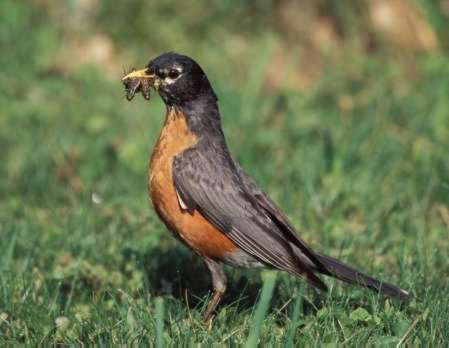For some reason I knew as I was finishing Emily Dickinson that I wanted to read Gerard Manly Hopkins next. I’m still unclear why the connection between the two was so strong in my mind. Perhaps it was merely the fact that although I loved particular poems by both I had never managed to finish reading their collected works. Perhaps it was merely the fact that neither was published in their lifetime, though both were befriended by a poet or critic who, while recognizing talent, didn’t fully appreciate the genius of their correspondents. Perhaps it was the fact that both had highly individual styles that seem as much a result of their isolation as the cause of it. Perhaps it is the unique combination of nature and religion in their poems that appeals to me.
Another similarity I’m finding now that I’ve gotten into Hopkins is that there a lot of poems by both that are not particularly appealing to me, possibly because their views of life at times seem so different from my own. Hopkins’ early poems, written between 1860-1875 focus rather heavily on his role as “select preacher, missioner, parish priest, and teacher in Classics in Jesuit establishment.” Needless to say, such poems do not have great appeal to me, though “Easter Communion” is rather interesting in light of the controversy surrounding Gibson’s latest movie:
13
EASTER COMMUNION
Pure fasted faces draw unto this feast:
God comes all sweetness to your Lenten lips.
You striped in secret with breath-taking whips,
Those crooked rough-scored chequers may be pieced
to crosses meant for Jesus; you whom the East
With draught of thin and pursuant cold so nips
Breathe Easter now; you serged fellowships,
You vigil-keepers with low flames decreased,
God shall o’er-brim the measures you have spent
With oil of gladness; for sackcloth and frieze
And the ever-fretting shirt of punishment
Give myrrhy-threaded golden folds of ease.
Your scarce-sheathed bones are weary of being bent:
Lo, God shall strengthen all the feeble knees.
Never having fasted during Lent, or any time, for that matter, I can only imagine what such a person must feel about an approaching “feast.” I identify even less with “breath-taking whips” and scars that somehow resemble Christ’s cross. In fact, it comes as a bit of a shock that such whipping would even be practiced as late as 1850 in England. Not being able to identify with sack cloths and hair-shirts leaves me little to really identify with in such poems.
Generally, I find myself more amiable to “Easter:”
23
EASTER
Break the box and shed the nard;
Stop not now to count the cost;
Hither bring pearl, opal, sard;
Reck not what the poor have lost;
Upon Christ throw all away:
Know ye, this is Easter Day.
Build His church and deck His shrine;
Empty though it be on earth;
Ye have kept your choicest wine-
Let it flow for heavenly mirth;
Pluck the harp and breathe the horn:
Know ye not ’tis Easter mom?
Gather gladness from the skies;
Take a lesson from the ground;
Flowers do ope their heavenward eyes
And a Spring-time joy have found;
Earth throws Winter’s robes away,
Decks herself for Easter Day.
Beauty now for ashes wear,
Perfumes for the garb of woe.
Chaplets for dishevelled hair,
Dances for sad footsteps slow;
Open wide your hearts that they
Let in joy this Easter Day.
Seek God’s house in happy throng;
Crowded let His table be;
Mingle praises, prayer and song,
Singing to the Trinity.
Henceforth let your souls alway
Make each morn an Easter Day.
Though I enjoyed the sense of joy that emanates from this poem, there’s little in it to suggest the more powerful later poems like “God’s Grandeur,” even if both make use of the rather delightful “reck.” “Tis fascinating, though, to discover these two very different portrayals of Easter mere pages apart, suggesting the kind of complex, mixed feelings that haunted Hopkins and provided much of the power behind his poems.
My favorite of Hopkins’ early poems, though, are rather pale imitations of Donne’s and Herbert’s metaphysical poetry:
11
Myself unholy, from myself unholy
To the sweet living of my friends I look-
Eye greeting doves bright-counter to the rook,
Fresh brooks to salt sand-teasing waters shoaly:
And they are purer, but alas not solely
The unquestion’d readings of a blotless book.
And so my trust, confused, struck, and shook
Yields to the sultry siege of melancholy.
He has a sin of mine, he its near brother,
And partly I hate, partly condone that fall.
This fault in one I found, that in another:
And so, though each have one while I have all,
No better serves me now, save best; no other
Save Christ: to Christ I look, on Christ I call.
As an “idealist,” I can certainly identify with the narrator’s viewpoint, and I’m usually harder on myself than I am on others, setting higher standards for myself than I expect from others. At times it’s hard not to be depressed by the state of the world, and the behavior of others. You don’t have to look at much television today to get depressed at the state of the world, now do you?

